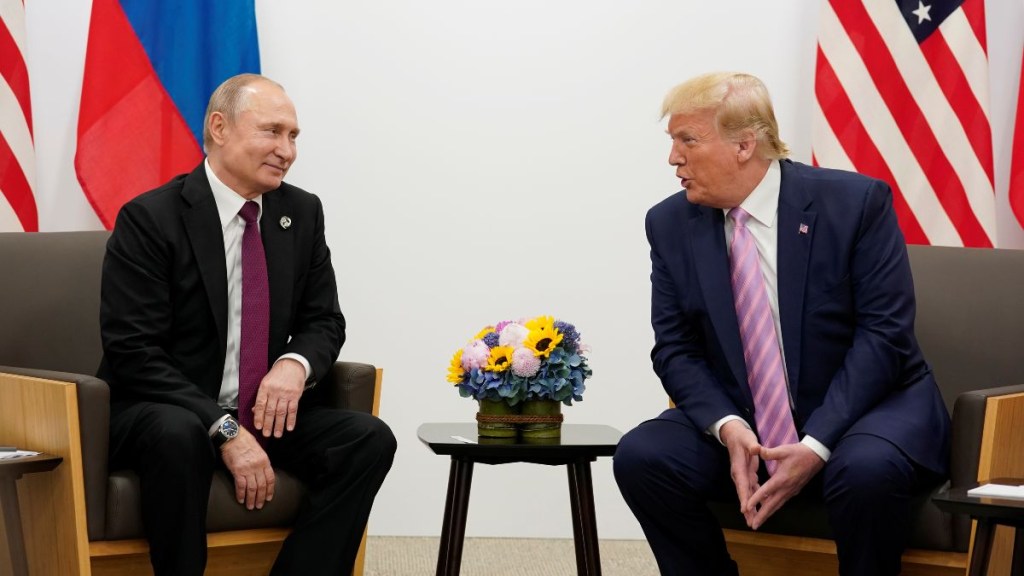Russian President Vladimir Putin expressed support for a 30-day ceasefire in the Ukraine war on Thursday but noted there were “nuances” that needed to be addressed. He urged the United States to engage in ceasefire discussions with Russia and suggested that US President Donald Trump should play a role in the negotiations.
The US President called Putin’s stance “promising” but said the Russian leader’s statement was “incomplete.” He emphasised that any ceasefire must lead to a lasting resolution and address the root causes of the conflict. Trump also pointed to the ongoing Kursk offensive, Russia’s efforts to seize Ukrainian-controlled regions, as a key factor in determining the next steps for a truce.
“We agree with proposals to cease hostilities, but on the basis that that cessation would lead to long-term peace and addresses the root causes of the crisis,” Putin said during a press conference in Moscow. He also stated that he had “serious questions” about the ceasefire terms and wanted to discuss them directly with Washington, possibly through a phone call with Trump.
“I think we need to talk to our American colleagues… Maybe have a phone call with President Trump and discuss this with him,” he told reporters.
The Kursk Factor
Meanwhile, Russian forces claimed full control over Sudzha, a strategic town in the Kursk region, which had fallen to Ukrainian troops after Kyiv’s cross-border offensive last year. The loss of Sudzha marks a significant setback for Ukraine, which has been losing ground along the front lines.
Moscow described the capture of Sudzha and two other settlements as a key victory, with Putin visiting the region in battle fatigues, reaffirming his commitment to “fully liberate” areas under Kyiv’s control.
The rapid Russian advances in Kursk coincided with a pause in U.S. intelligence-sharing and military support for Ukraine. However, analysts cautioned against drawing a direct link between these developments. With Russian forces outnumbering and outgunning Ukraine, Kyiv has been steadily ceding territory for over a year, raising concerns about its ability to hold key regions in the ongoing conflict.
